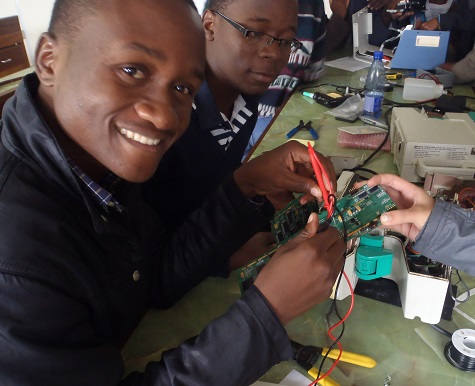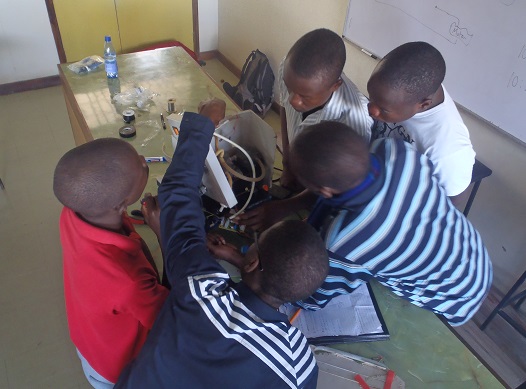It’s been a great time this past week teaching our class at the Poly, and the best part has definitely been the students. I was stressed and anxious at first, but after the first couple of days I realized I just needed to relax: it’s about the students, it’s not a performance. When we weren’t able to get all the equipment we planned on, instead of worrying about how it would turn out, I learned to just do my best with what we had. In the end, I’m so thankful for all the equipment that we did have to work with, and I think the students learned a lot.
As electrical engineers, our students were very adept at troubleshooting electrical failures and following circuit diagrams. Our main goals were to educate them on the physiological background–why each medical device was needed–and to teach them to approach troubleshooting in a systematic way. One major difference between our students and students in the United States was that these students were much more reserved and hesitant to answer questions. However, especially in the practical, hands-on portions of the class, everyone was eager to share and try out their ideas. By the end of the course, we had covered Oxygen Concentrators, the Rice bCPAP, Suction pumps, Syringe pumps, and centrifuges.

(Hope examining a circuit board from a broken infusion pump)
Give a man a fish and he will feed himself for a day; teach a man to fish, and he can feed himself for a lifetime.
This class has meant a lot to me because I think that sustainable changes to healthcare in Malawi aren’t going to come with donations, or even with service, but through education. Money will be used up, expatriots will eventually leave, but training Malawians with the skills they need can make a lasting difference.
Below is a picture of a small group session of the troubleshooting workshop repairing a suction machine from the 80s. In perhaps the best success story of the week, our students were able to figure out what was wrong and bring the device back into working order, even when we the instructors were stumped.

(Atupele, Gilbert, Hope, Paul, and Isaac troubleshooting the suction machine)
Next week we’ll transition to some more CPAP related projects, but for now, it’s World Cup time!